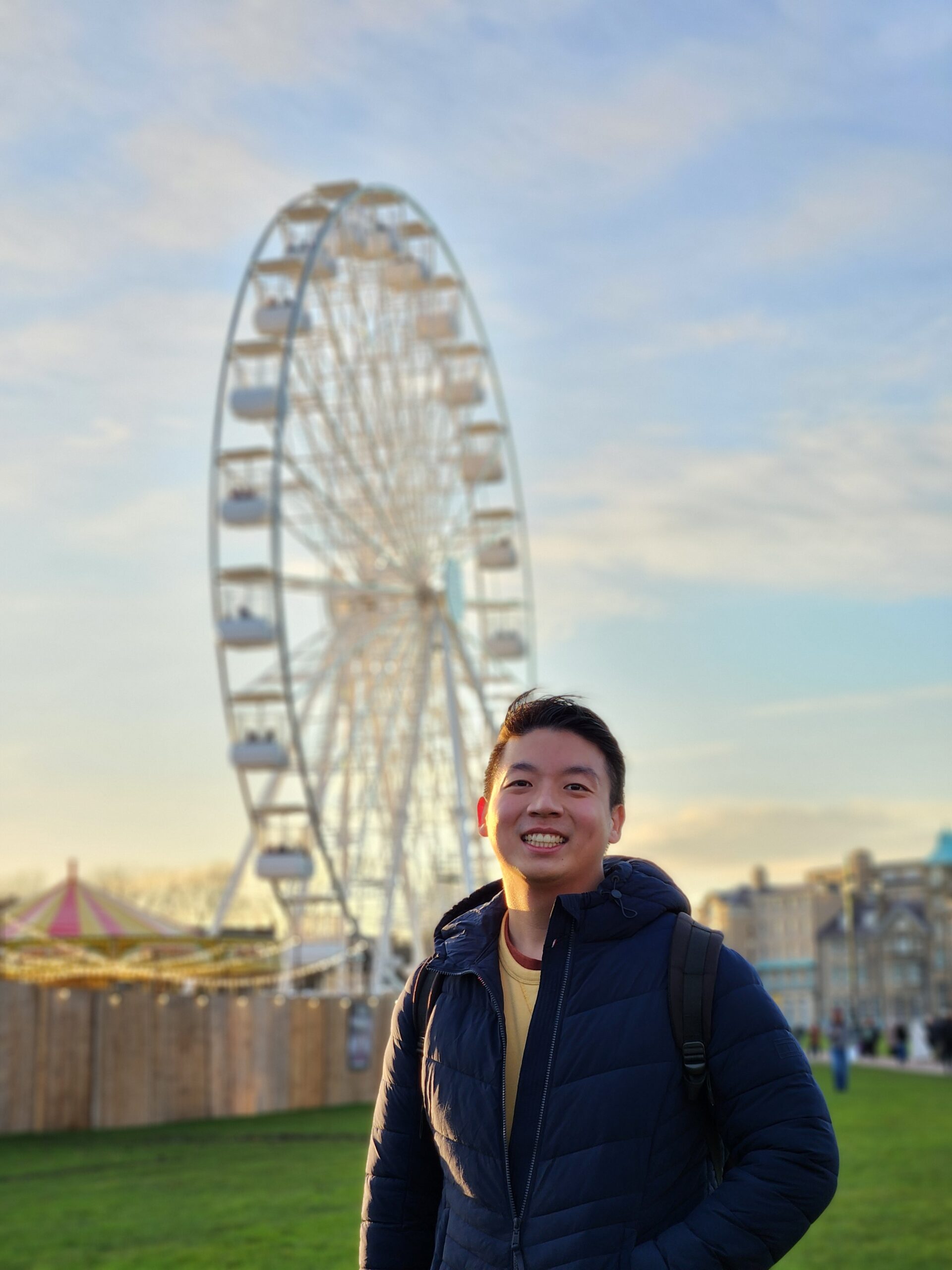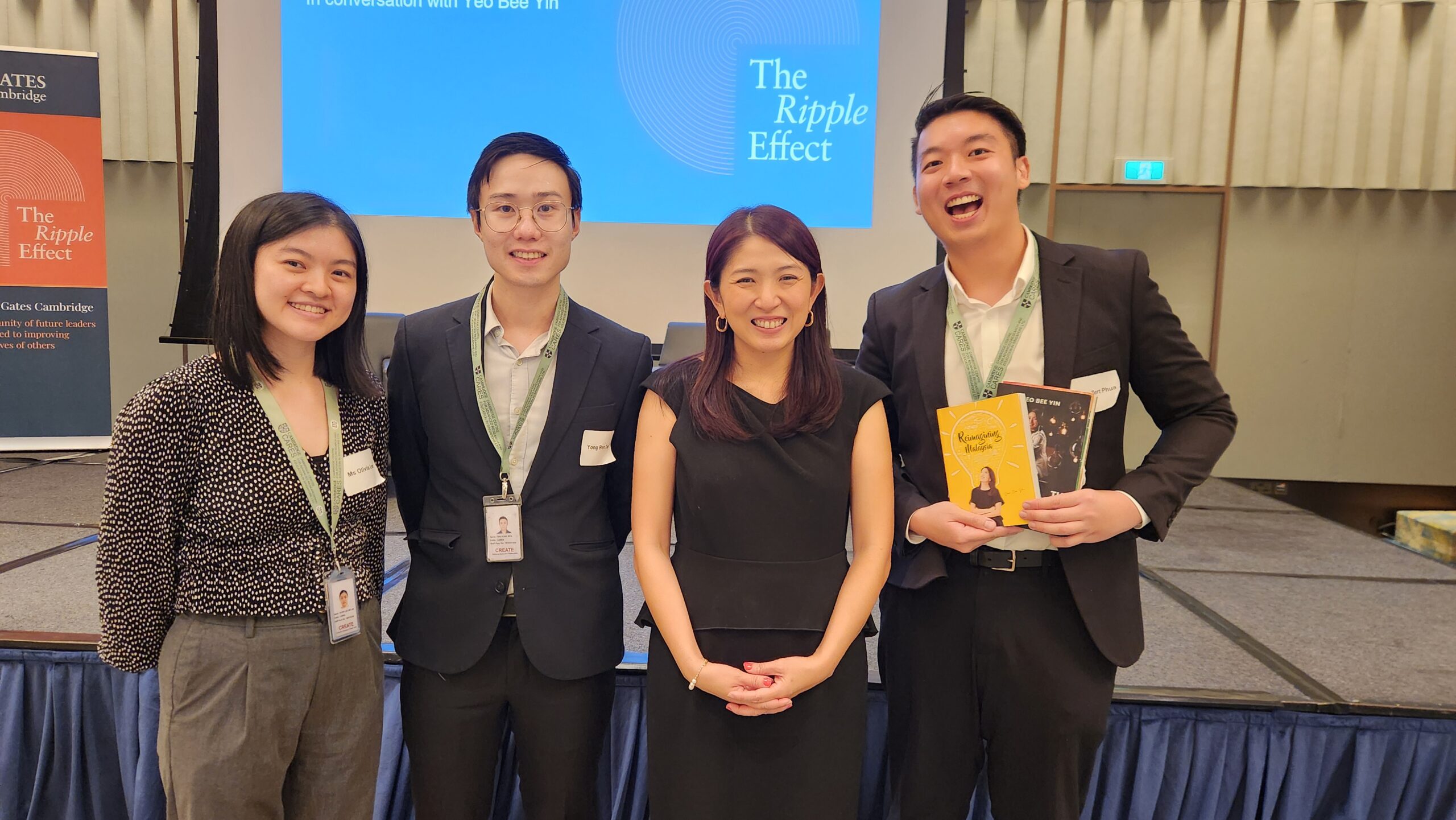
Shin Zert Phua is studying Human-Inspired AI to develop new ways of highlighting the impact of the environment on health.
If we do not start to think about how we can capture human-centric information, AI models will lead to greater marginalisation of certain groups. Humans must be at the core of design.
In 2016, at the age of 17, Shin Zert Phua travelled to Singapore to study for a three-year diploma in mechanical engineering. Three months later his father was diagnosed with stage four lung cancer.
That shock triggered a whole series of questions for Shin Zert that have shaped his career trajectory ever since. His doctors said that there was a gene mutation that caused his cancer. His father had never smoked. “That prompted me to think about why my dad had been diagnosed with stage four lung cancer out of the blue. Was it due to the place we lived near a highway; was it diet; what was it?” he says. He became more and more interested in the impact of the environment on health.
That interest will soon guide his work at CARES [the Cambridge Centre for Advanced Research and Education] where he will be involved in the Health-Driven Design for Cities project working with experts around the world. The aim is to plan for cities which will promote longer, healthier lives.
Shin Zert [2025] starts a new master’s course in Human-Inspired Artificial Intelligence this term to take that work forward. He thinks the master’s course is a case of being ‘the right person, in the right place at the right time’. “I have always been fascinated by the intersection between AI, humanity and ethics,” he says, adding that, using digital twins, he hopes to develop a knowledge structure to capture the relationship between different personal information, health outcomes and the urban environment.
He states: “AI needs a lot of data and that data needs to be as human-centric as possible in order to be effective, but that data needs to be unbiased in order to offer comprehensive solutions. If we do not start to think about how we can capture human-centric information, AI models will lead to greater marginalisation of certain groups. Humans must be at the core of design.”
Childhood and early studies
Shin Zert was born in the small mining town of Ipoh just outside of Kuala Lumpur. His immediate family comprises his parents who sold stationery for a living and his older sister. He enjoyed maths and physics at school and decided to move to Singapore to do his diploma.
After his father’s diagnosis, he did waitering jobs to make ends meet. He then won an ASEAN scholarship to do his undergraduate degree in mechanical engineering at Nanyang Technological University where he became interested in AI.
Shin Zert’s studies coincided with the Covid-19 pandemic and he worked as a university safe entry officer, checking people’s temperatures before they could enter university buildings. His father died in April 2021 during lockdown. Shin Zert was able to return to Malaysia just before he died, but had to quarantine alone in a hotel on his way to and back.
During Covid, Shin Zert took part in food deliveries to isolated older people living on their own. Some were in wheelchairs due to amputations as a result of diabetes; others had other disabilities. He wondered if more could be done to prevent chronic illnesses and give them more healthy years. “We don’t just want people to live longer; we want them to have healthy, prosperous lives, yet we seem often to be reacting to health issues rather than adopting a preventive approach. I wondered if we could change our environment to bring better outcomes,” he says.
Working life
On graduation with a gold medal for his studies, Shin Zert took a job at CARES, which was established in 2013 as the University of Cambridge’s first research centre outside the UK. It focuses on research questions of interest to Singapore, where it is based, but also other countries, including health-driven design for cities.
 Shin Zert started working on digital twins research with teams in Cambridge, Germany and Singapore. His first projects were in the UK and Germany. In the UK, the project focuses on flood resilience, that is, strategies for building disaster resilience. He was working on a digital copy of King’s Lynn in Norfolk and looking at flooding scenarios of different severities, for instance, what routes might be available to ambulances, what roads need to be protected most and what would happen with regard to healthcare access, particularly for elderly people. In Germany he was investigating ways to improve city planning and make cities more sustainable, in particular for populations which are not covered by certain key amenities.
Shin Zert started working on digital twins research with teams in Cambridge, Germany and Singapore. His first projects were in the UK and Germany. In the UK, the project focuses on flood resilience, that is, strategies for building disaster resilience. He was working on a digital copy of King’s Lynn in Norfolk and looking at flooding scenarios of different severities, for instance, what routes might be available to ambulances, what roads need to be protected most and what would happen with regard to healthcare access, particularly for elderly people. In Germany he was investigating ways to improve city planning and make cities more sustainable, in particular for populations which are not covered by certain key amenities.
In Singapore, he was working on a digitally enriched copy of the country which involved all buildings, cultural sites and heritage trees and was looking to provide granular detail about the uses of specific buildings, construction costs, road networks and so forth for planning various scenarios related to sea level rises. He also investigated pollutant exposure during both travel to work and to healthcare settings.
In the next year, Shin Zert will be part of CARES’ Health-Driven Design for Cities project. It brings together a global team of epidemiologists, clinicians, scientists, engineers and architects to investigate how individuals move in space and time in Singapore, their corresponding exposure to risk factors that intersect with urban environments and how this influences their behaviours.
Cambridge
It is this work on how the urban environment can affect health that he plans to enhance through his master’s studies which will explore how to put humans at the centre of urban design. Shin Zert says a professor told him it would take ‘a miracle’ to get funded to do the course. While that comment could have put him off, Shin Zert says his life has been characterised by a series of such miracles, from the money he received to travel to see his father for the last time to the sponsorship for previous studies.
 He applied for Gates Cambridge funding and had his interview in Singapore earlier this year. Just before the interview he got to meet Yeo Bee Yin [pictured with Shin Zert left], a Gates Cambridge Scholar who was Minister for Energy, Science, Technology, Environment and Climate Change in the Malaysian government. “She was such an inspiration to me and I so admire her story, “ says Shin Zert. “It was such an honour to meet her at the Gates Cambridge meeting.”
He applied for Gates Cambridge funding and had his interview in Singapore earlier this year. Just before the interview he got to meet Yeo Bee Yin [pictured with Shin Zert left], a Gates Cambridge Scholar who was Minister for Energy, Science, Technology, Environment and Climate Change in the Malaysian government. “She was such an inspiration to me and I so admire her story, “ says Shin Zert. “It was such an honour to meet her at the Gates Cambridge meeting.”
Not only did he get accepted for a Gates Cambridge scholarship, but also for an honorary scholarship from Fitzwilliam College. “All of these good things that have happened to me have motivated me more and to help other people, to give back all of the kindness I have received,” he says.












